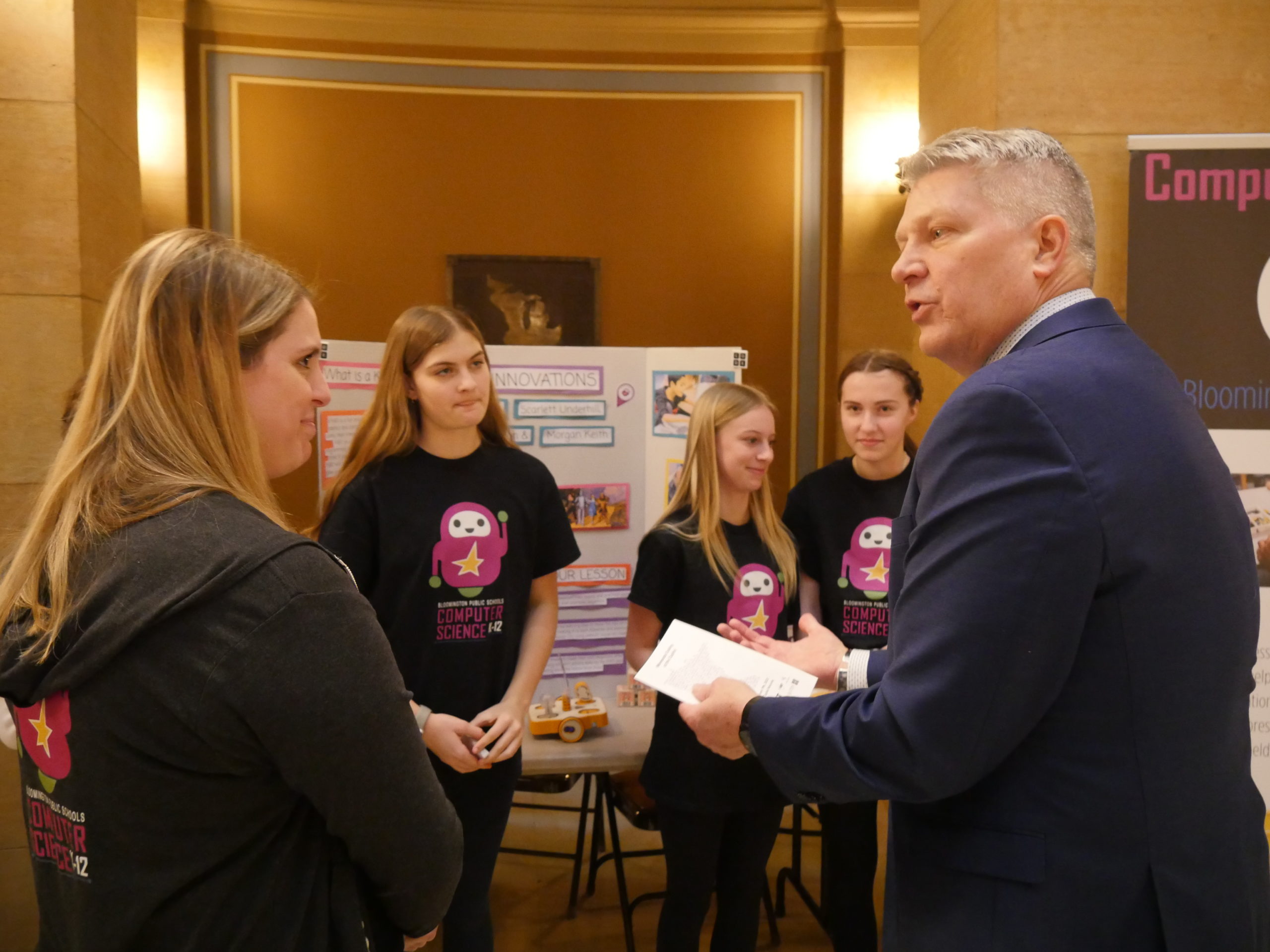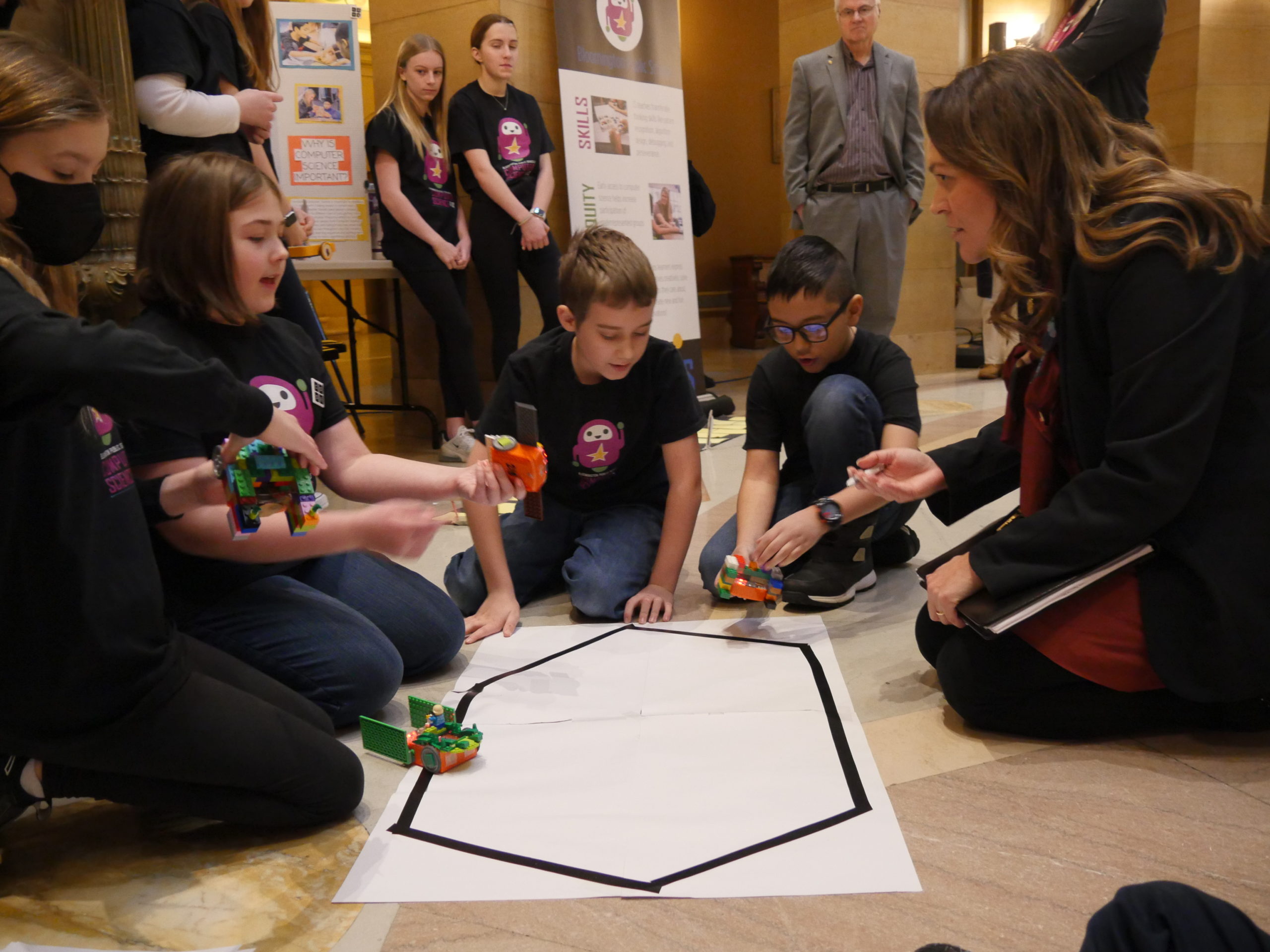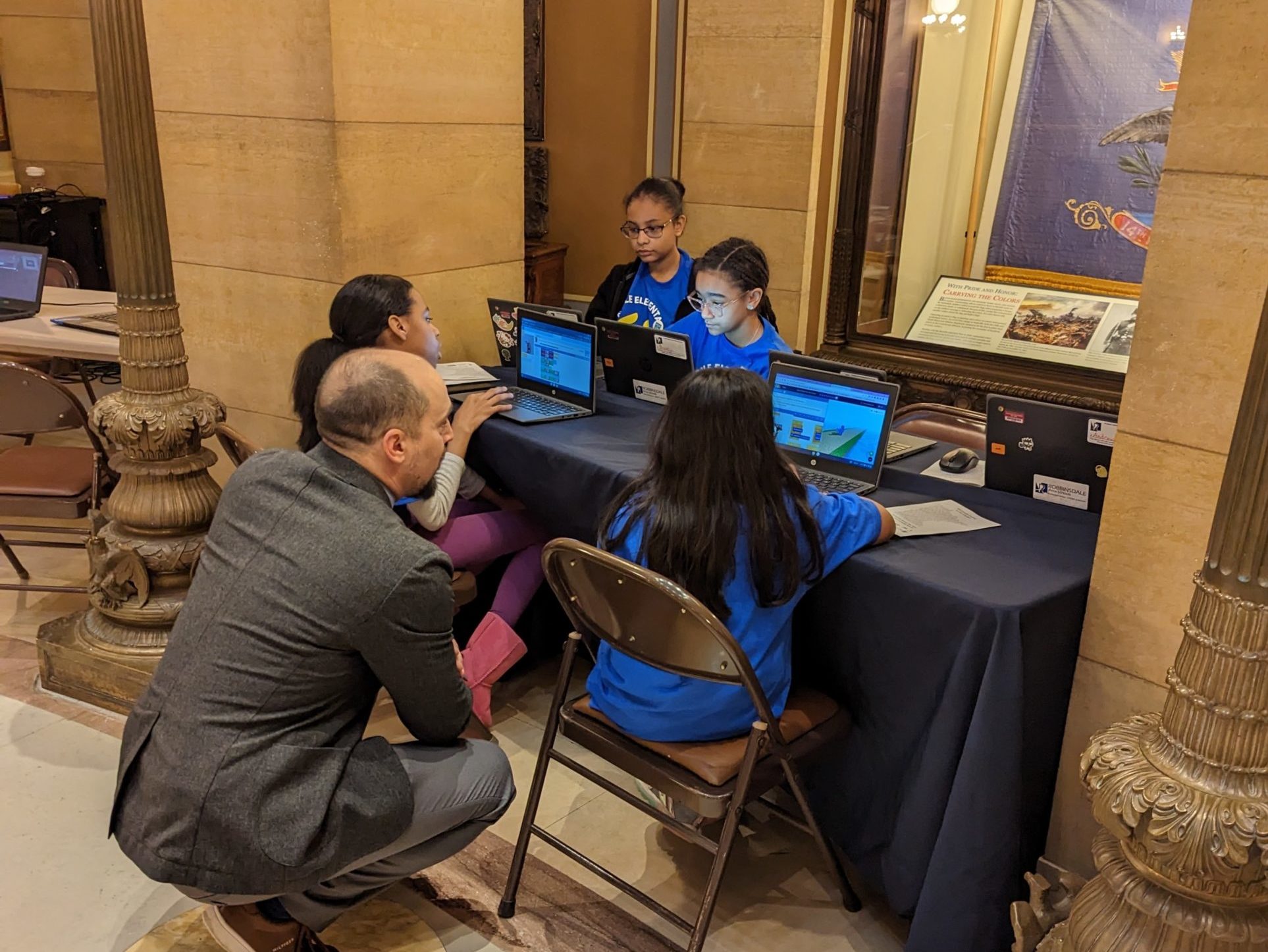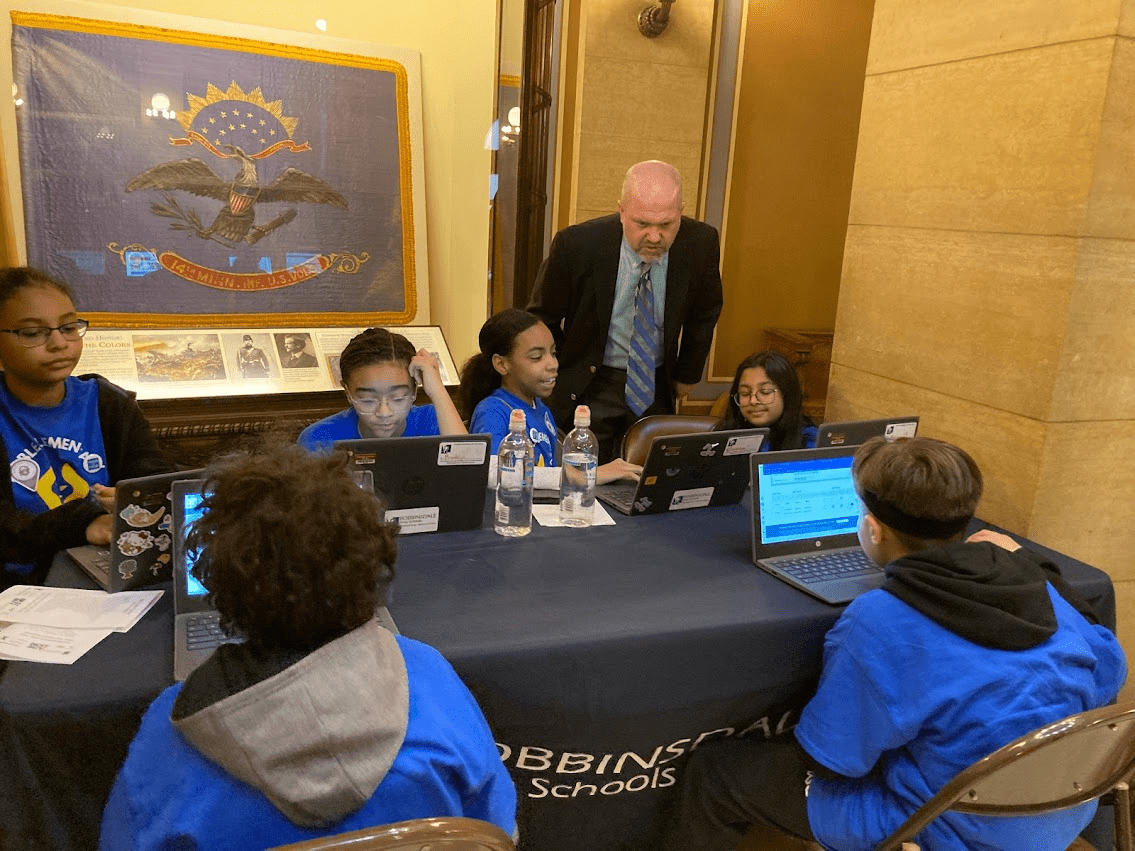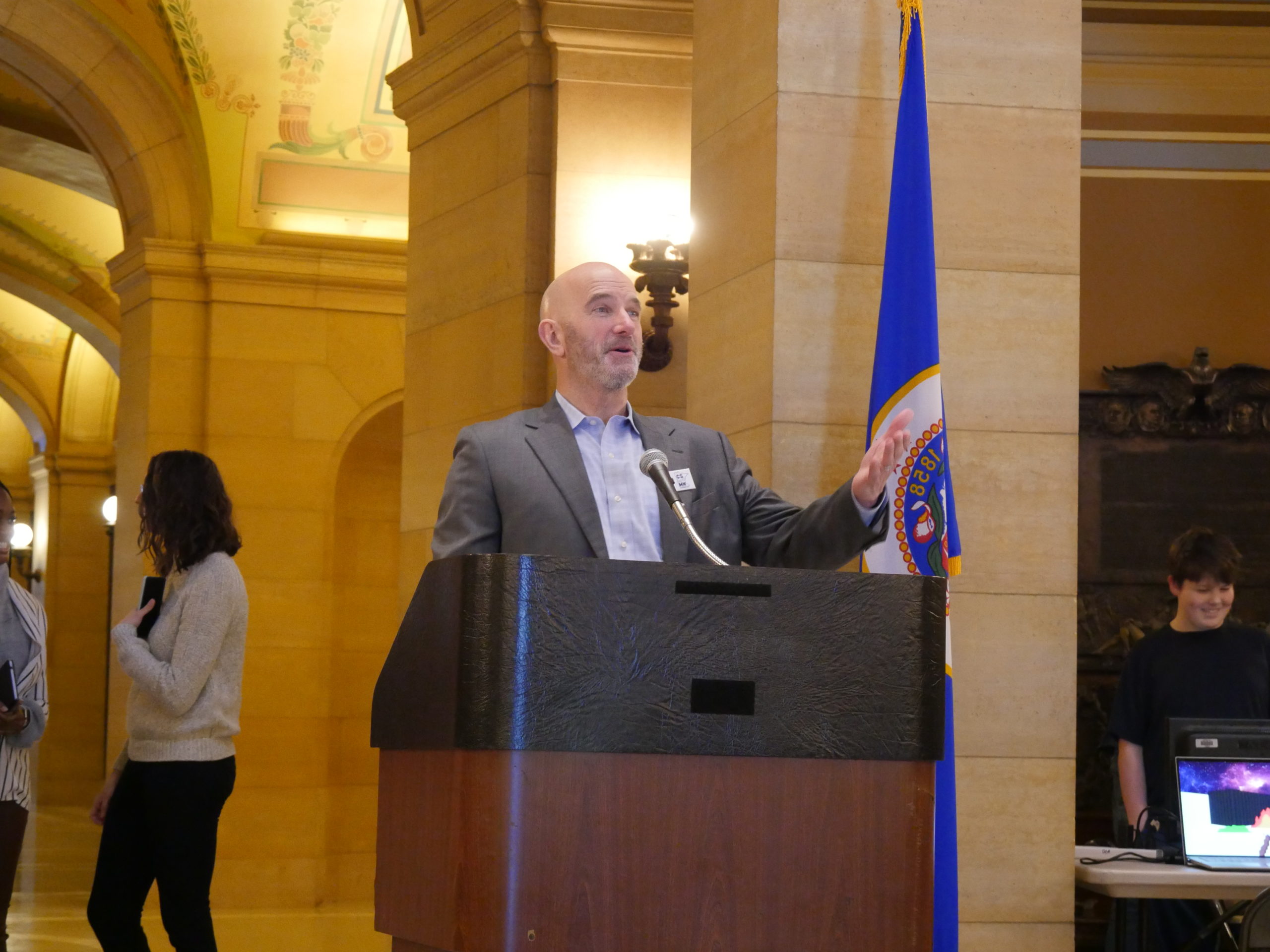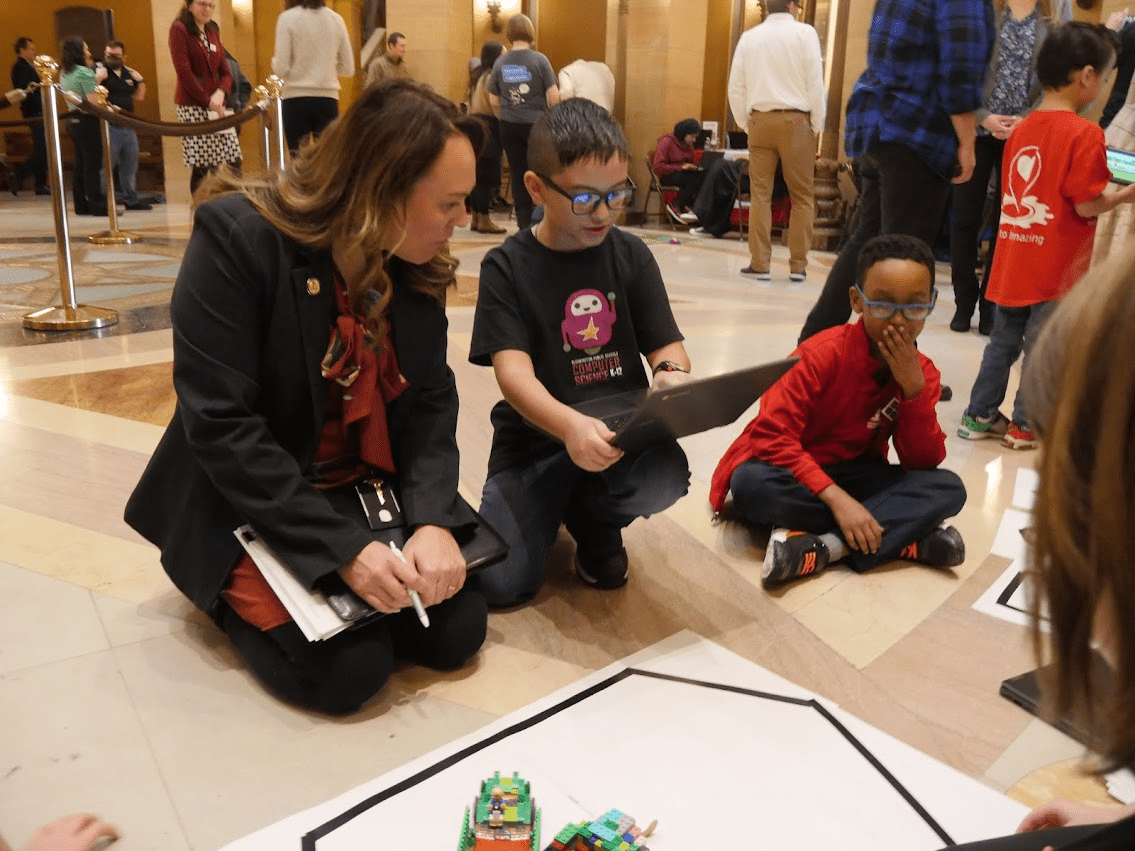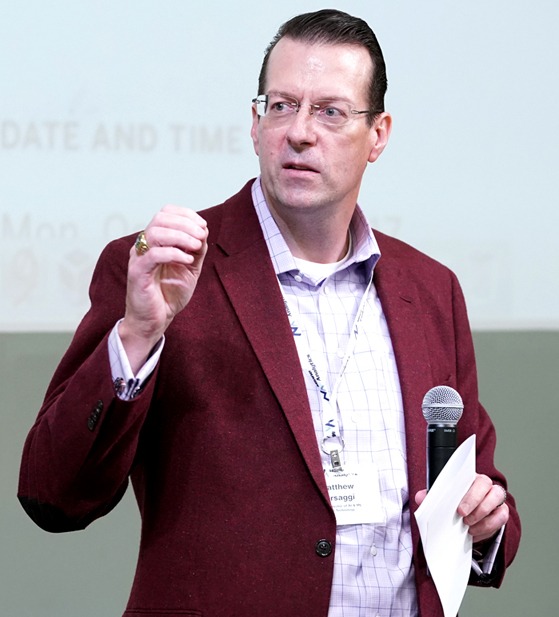MnTech Emphasizes Importance of Computer Science Curriculum with Coding at the Capitol
On a snowy Thursday morning, dozens of children filled the rotunda of the Minnesota state capitol in Saint Paul. They toted computers, electronics, and other gadgets, many provided by local company Best Buy, for Coding at the Capitol. This event, sponsored by Best Buy, Code.org, Microsoft, and the Minnesota Technology Association (MnTech), brought together students, teachers, legislators, and business leaders to highlight the importance of computer science education in Minnesota.
Throughout the morning, children showed off their skills in coding and computer science (CS) by demonstrating websites and apps they had built, a robotic Lego ping-pong ball launcher, a programmable rover, and activities using Python and Scratch.
These students have gained CS skills through courses and clubs at their schools, but most students in Minnesota are not that lucky. Only 21% of high schools in Minnesota offer foundational computer sciences courses, which reaches only 43.5% of students. In fact, Minnesota currently ranks last – 50th out of 50 states – in high schools offering computer science courses. However, MnTech and our partners at CS for All MN and Code.org hope to change that.
“It’s time for change,” said Jeff Tollefson, President and CEO of MnTech, while speaking from the rotunda. “What we hope to do is to move Minnesota from being last in the country in the percentage of high schools that offer access to foundational computer science coursework to first over the next five years. And we’ll be introducing a bill, the Minnesota Computer Science Education Advancement Act, that will help us do that over the course of the next five years.”
Minnesota’s tech and tech-enabled employers cannot hope to be competitive if we do not have a strong talent pipeline with students gaining the skills learned through CS courses, including how to think computationally and create new technologies for the careers of the future. That is why MnTech is supporting the Computer Science Education Advancement Act in the 2023 legislative session. This bill will provide the necessary resources to develop a plan and implement the expansion of computer science education in Minnesota. This will ensure that all students have the opportunity to learn computer science and their teachers receive training to incorporate and teach computer science.
Technology jobs in Minnesota remain highly competitive, with the average annual median tech wage at $94,715, 106% higher than the median state wage, and the demand for workers is far outpacing the supply with only one out of every four posted job openings filled. Creating opportunities now for students can help ensure Minnesota has a steady supply of in-demand talent. According to MnTech’s 2022 State of Tech Talent Report, Minnesota will need at least 81,503 new IT professionals to replace retirements and exits due to career changes over the next 10 years.
If you’re eager to get involved in advancing tech policy like the Computer Science Education Advancement Act, you can sign up for MnTech’s policy newsletter to receive policy and advocacy updates, or you can get in touch with MnTech’s Director of Public Policy and Research, Katie McClelland.

